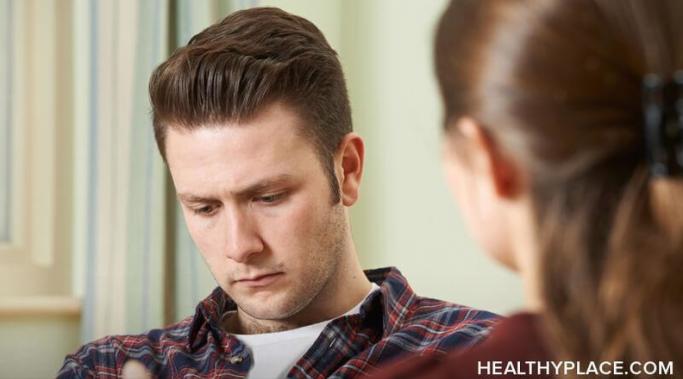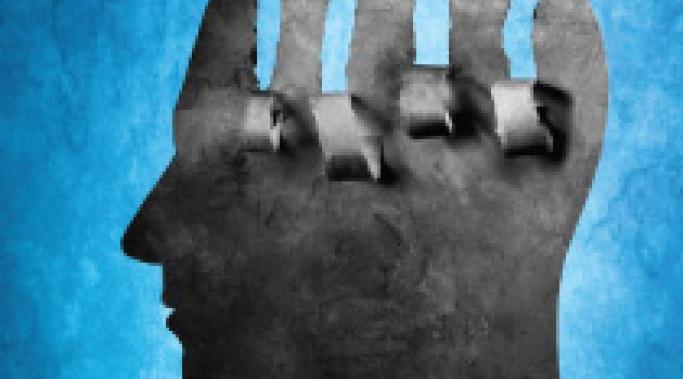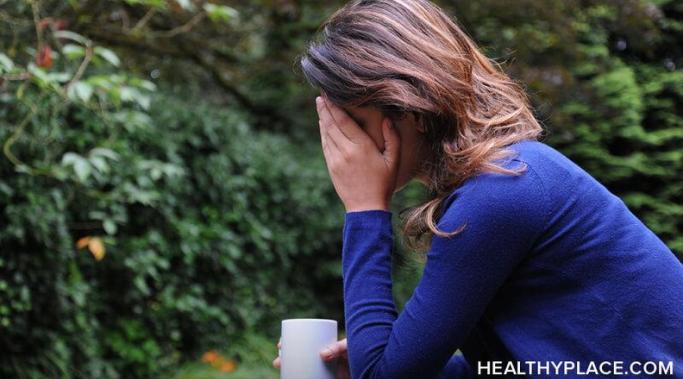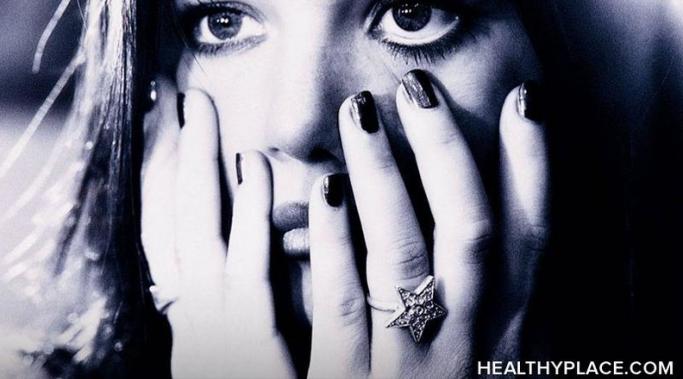Red Bull may give you more than wings: it can give you symptoms of mental illness. What do the studies say about energy drinks and psychiatric symptoms such as mania, psychosis, and substance abuse?
Recovering from Mental Illness
Ruminating can harm your mental health recovery because when you "go over in the mind repeatedly and often casually or slowly" you compulsively remind yourself of what is wrong. It's negative thoughts compounded by repetition and habit, making rumination dangerous. People with depressive and other mental illnesses often have a similar trait: many suffer from excessive and compulsive negative thoughts that distort reality. Thus, rumination involves an endless loop of negative thinking that can exacerbate depression and other mental illnesses.
Unfortunately, abused people often believe certain lies. No one wakes up one day and says, "I think I'll fall in love with an abusive person." Many people in abusive relationships report that there was no violence until the relationship was well-established. At this point, conflicting emotions come into play--and emotions can be powerful and confusing. The fact that abused people believe lies makes the situation even more complicated. Here are three lies abused people believe.
Police shootings of the mentally ill are all far too common. Recently, a neighbor I nicknamed "The Little Old Lady with the Big Ol' Temper" found out her disability check was going to be a day late. This 4'10", 140-pound, 70-something lady grabbed her cane and started destroying the social worker's office. Two police officers responded, and she resisted. In the scuffle, her head went through a window. Many other encounters between police officers and people with mental illness have a less happy ending. According to the Maine Attorney General's Office, 58% of Maine residents killed by police had a mental illness(http://www.maine.gov/dhhs/samhs/osa/pubs/data/2013/SEOWEpiProfile2013FINAL.pdf). The rate may be similar nationwide, but there's no way to track it.
I was admitted to a psychiatric hospital for the first time in college. Because I went to an out-of-state university, my family was unable to help, so a friend took me to a psychiatric hospital. Both my family and my friend had concerns: How long was I going to be there? What was going to be done to keep me from committing suicide? What exactly could I expect? Here are three things families and friends need to know about psychiatric hospitalization.
Mental health is related to the struggle for gay rights. Unless you've been living under a rock for the past few days, you've heard that my state, Indiana, has passed S.B. 568, the Religious Freedom Restoration Act, a law allowing people to discriminate against lesbian, gay, bisexual and transgender (LGBT) individuals in the name of religious freedom. On Saturday, I marched with about 3,000 of my new best friends to protest this, even though I am not part of that community. I marched because I understand that mental health has a connection to the struggle for gay rights. Here are three cases where the struggle for gay rights is directly relevant to mental health.
Have you considered what happens during a mental health crisis when you call the police? Recently one of my neighbors tried to enter my apartment without my permission. I quickly slammed the door and told him to go away. He stood outside my door talking nonsense, so I told him, "Go away or I will call the police." That did the trick. However, it made me think about how police encounters with individuals with mental illness can turn tragic (Handling Police Encounters with People with Mental Illnesses). How do we call the police for someone in a mental health crisis who is a danger to him/herself or others in a way that the encounter proceeds as safely as possible?
Do you know there are herbal remedies for anxiety? I have an extremely annoying neighbor. He was up all night laughing last night, which means I didn't get any sleep. This has been going on for weeks. Talking to him hasn't done any good. My anger and annoyance, fueled by sleep deprivation, are rapidly approaching homicidal ideation. Fortunately, there are three herbal remedies I know that help ease the raging anxiety.
The lack of motivation that can be caused by depression and other mental illnesses can be debilitating. There are some things that are so important they must be done as soon as possible. But for those who battle depression, the lack of motivation can be an enemy that seems insurmountable at times (Depression Can Drain You of Your Will to Live). Here's what to do when depression causes a lack of motivation.
Does the news trigger your mental illness symptoms? I guess you could say early on there were signs I was going to be a reporter when I grew up--I read the newspaper as soon as I learned to read. Then, as today, there were some very disturbing things going on. I remember having a nightmare about the Neighborhood of Make-Believe being bombed when Reagan ordered the bombing of Libya. I never outgrew this, either--I am currently coping with posttraumatic stress disorder (PTSD) flashbacks caused by the coverage of a high-profile rape case and a disgusting child abuse case. It made me wonder--what can I do when the news triggers my mental illness symptoms? Here are three ideas.









